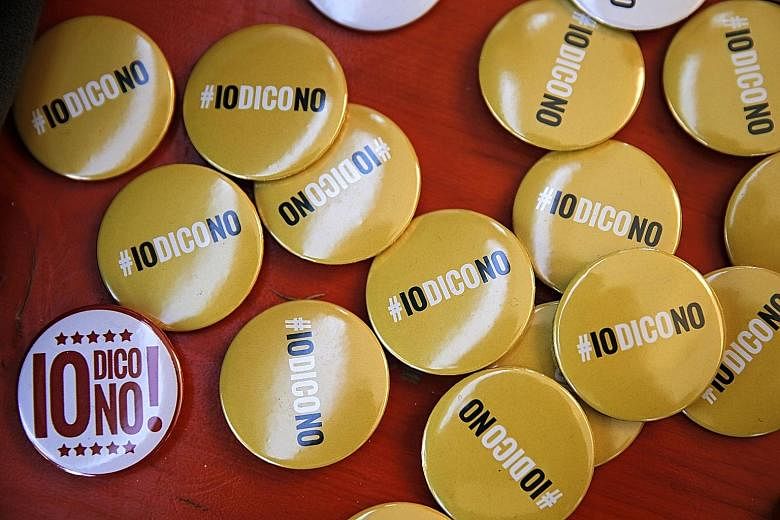ROME • Anxiety about bogus news reports is rising in Europe, as Italian Prime Minister Matteo Renzi and others express concern that fake news circulated over social media may influence elections on the continent, including a critical referendum in Italy today.
The outcome of the Italian vote on Mr Renzi's plan to streamline Parliament could determine the fate of his government. If voters reject the plan, as polls suggest they will, the centre-left leader has said he will step down.
The vote outcome may affect the stability of European financial markets and further weaken the moorings of the European Union.
Leaders on both sides of the Atlantic are trying to determine whether political parties are using social media platforms to deliberately disseminate propaganda.
Analysts in the US have suggested that Moscow injected fake news into social media sites there as a weapon to influence the Nov 8 presidential election, including bogus reports that may have helped Republican Donald Trump win.
President Vladimir Putin's goal in Europe is to radicalise politics, analysts say, breaking the liberal consensus and strengthening his regional influence.
As early as April, Mr Renzi had complained privately about Russia meddling in Italian politics by supporting anti-establishment parties.
In November, he privately discussed the spread of fake news with other European leaders and US President Barack Obama at a meeting in Berlin.
Mr Obama forcefully assailed the phenomenon while standing beside German Chancellor Angela Merkel, who had warned of Russian misinformation campaigns that "could play a role" in her own re-election bid.
Mr Renzi's biggest domestic opponent has been the anti-establishment Five Star Movement, which would benefit most should he lose the referendum.
Buzzfeed and Italy's La Stampa recently reported that blogs, social media accounts and websites in Russia linked to the Five Star Movement were spreading fake news harmful to Mr Renzi across their vast virtual networks.
Russia has long had close ties with Italy, especially under former prime minister Silvio Berlusconi, a personal friend of Mr Putin.
These days, the Putin government appears friendlier to anti-establishment opposition figures like Mr Matteo Salvini, head of the anti-immigrant Northern League, who opposes sanctions on Russia.
While Mr Putin has met Mr Renzi, the Russian government appears to be especially welcoming to the Five Star Movement.
Ms Lia Quartapelle, an MP in Mr Renzi's Democratic Party, said Five Star Movement members advocate an exit from Nato and "use the Russian propaganda".
NYTIMES, AGENCE FRANCE-PRESSE
SEE INSIGHT

